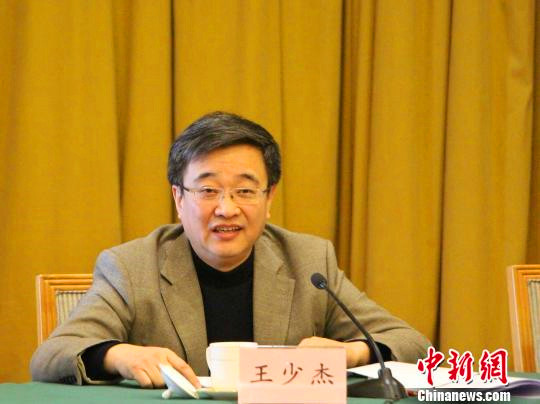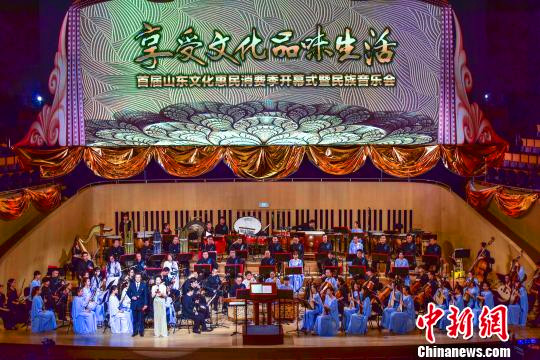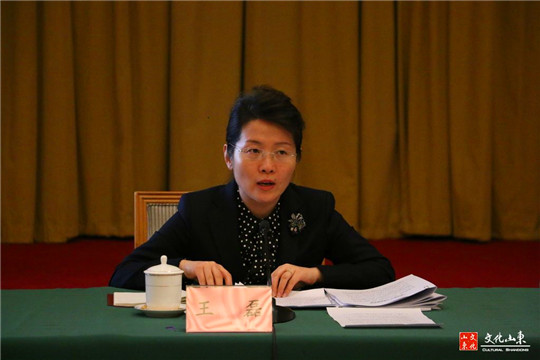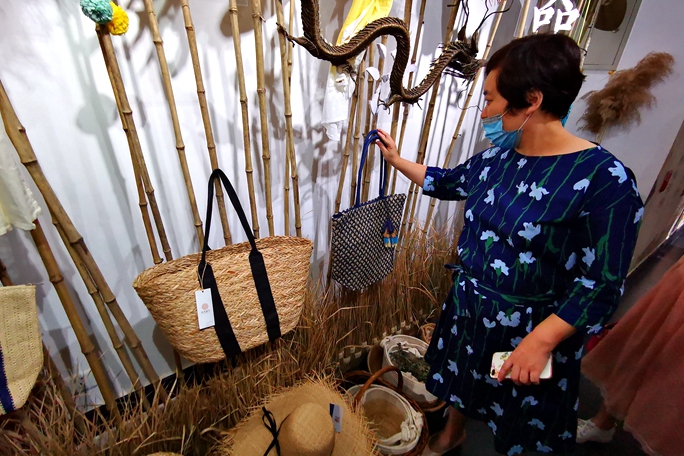Cultural consumption on the rise in Shandong
The First Shandong Cultural Consumption Season generated 420 million yuan ($65.4 million) in the sales of cultural products and services, according to a summary conference convened by the Shandong provincial government on Jan 15 in Jinan, capital of Shandong province.
The First Shandong Cultural Consumption Season, which was unveiled on July 20, 2017 and lasted for 100 days, was organized by the Shandong provincial department of culture. It was scheduled with nearly 5,000 cultural activities that had been carried out both online and offline in the province's 17 cities, in a bid to enrich residents' lives as well as boost the development of regional cultural sector.
 |
|
Wang Shaojie, vice director of Shandong provincial publicity department, delivers a speech at the summary conference of the First Shandong Cultural Consumption Season on Jan 15 in Jinan, Shandong province. [Photo by Zhao Xiao/Chinanews.com] |
Wang commented that Shandong has huge potential in cultural consumption, which will be made into a new momentum of economic growth through supply-side structural reform in the cultural sector and building a comprehensive cultural consumption platform.
 |
|
East China's Shandong province kicks off its three-month cultural festival at a concert held in its provincial capital city Jinan, on July 20, 2017. [Photo/Chinanews.com] |
According to Li, the cultural consumption season helps attract more people and bring in more box office earnings.
 |
|
Wang Lei, head of Shandong provincial department of culture, delivers a speech at the summary conference of the First Shandong Cultural Consumption Season on Jan 15 in Jinan, Shandong province. [Photo/Cultural Shandong] |
According to the Shandong provincial department of culture, since 2014, the province has established 150 centers in both rural and urban areas to promote fine traditional culture.
The centers in libraries, officially called Nishan Academies, have lecture halls and reading rooms for Confucian classics. Shandong has multiple Confucianism research institutes. Nearly 10,000 villages have a Confucianism teacher in the province.

 Shandong Culture and Tourism Consumption Season
Shandong Culture and Tourism Consumption Season Culture, tourism sectors pick up in Shandong as epidemic wanes
Culture, tourism sectors pick up in Shandong as epidemic wanes

